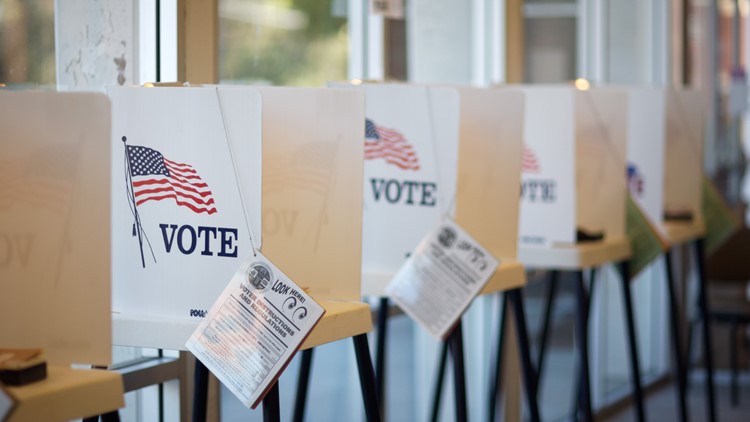AUGUSTA, Maine — Maine could be the latest state to ditch its presidential caucus for a primary system, a move that would leave just a handful of states with the more grassroots caucus system heading into the 2020 presidential election.
The bill has sailed through the Democratic-led House and Senate, but the Senate on Thursday sent the bill to lawmakers on the Legislature's appropriations committee as they hash out a deal on the budget. The sticking point now is funding: Maine lawmakers must weigh whether to provide roughly $120,000 this upcoming year to fund printing and delivering presidential primary ballots to municipalities.
As the 2020 presidential primary season nears, Maine is among an increasingly small handful of states that still have caucuses, including Iowa, Nevada and Wyoming. That's down from 15 states in 2008, as states including Kansas, Idaho and Colorado have dropped traditional caucuses in recent years for state-run or party-run primaries.
More states have made the change ever since the national Democratic Party adopted a preference for state-run primaries last August, according to political scientist Josh Putnam, a lecturer in public and international affairs at the University of North Carolina-Wilmington who tracks elections and campaigns for his blog, Frontloading HQ.
He said Maine is the seventh state to switch from a caucus in 2016 to a state-run primary.
Caucuses feature often lengthy group discussions at meetings where party members select candidates to support, while voters at statewide presidential primaries instead cast ballots for candidates.
A 2016 Maine law switched the state to presidential primary elections, but it was never funded and ended up being automatically repealed. Maine also had primaries in 1996 and 2000, but parties called for a return to caucuses long viewed as helping to engage and organize voters.
Now, primary supporters buoyed by Democratic gains in the Legislature are pointing to reports of headaches at Maine's 2016 presidential caucus meetings. Republicans faced long drives to regional caucus locations, while Democrats faced long lines at overcrowded caucuses.
Maine typically boasts among the nation's largest turnout.
But local voting groups argue long lines discourage voters, and that caucuses simply can't engage as many voters as primaries. About 65,000 Mainers participated in the 2016 presidential caucuses, while over 200,000 voted in the 2018 statewide gubernatorial primary.
"Even when individual caucus locations seem crowded on caucus day, the number of Mainers who participate is far smaller than the number who vote in primaries," Bob Howe, a lobbyist for the League of Women Voters of Maine recently told lawmakers. "Primaries offer a much broader gauge of public support, and draw a more representative electorate, than party caucuses."
But the long-cherished tradition of caucuses also has its own proponents in the largely rural New England state, who praise its small-town, community feel.
Caucuses in Maine and elsewhere have at times given an edge to candidates who brand themselves as outsiders: Presidential contender Bernie Sanders won caucuses in a dozen states, including Maine, Kansas and Nebraska in 2016, while Republican Ted Cruz came out on top in Maine's presidential caucus that year.
"I think where it's going to potentially hurt is with well organized, lesser known candidates," said Putnam. "They're the ones who can take advantage of a caucus rather than a primary format."
Bonnie Heptig, who is treasurer of the York County Maine Republican Committee, said she enjoys hearing and seeing from candidates and local citizens, and reading literature passed out at caucus meetings.
"It's just more intimate, accessible," Heptig said.



